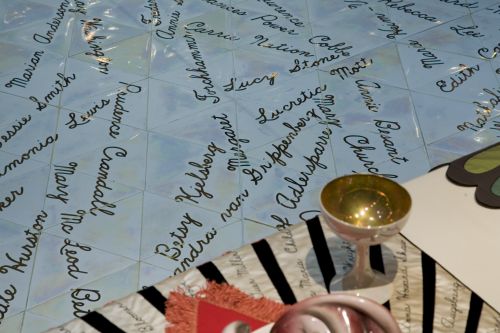Ida B. Wells
b. 1862, Holly Springs, Mississippi; d. 1931, Chicago
Born a slave six months prior to the Emancipation Proclamation, Ida B. Wells continued the militant tradition of earlier African American leaders like Frederick Douglass and Maria W. Stewart and laid the foundation for the modern civil rights movement in her insistence on economic and political resistance to oppression. In 1884, she took a teaching job in the Memphis public schools. That year, she sued the Chesapeake & Ohio Railroad for ejecting her from a train when she refused to move to a “colored only” car; she won the suit, but the decision was reversed three years later by the Tennessee Supreme Court. She became editor of the Evening Star in 1886, publishing editorials under the pen name “Iola,” and bought an interest in the Free Speech and Headlight in 1889. An article attacking the inferior education received by black children in segregated schools got her sacked from her teaching job and in 1891 she turned to journalism full time. The lynching of three black grocers in 1892 marked the beginning of a sustained antilynching crusade pursued through incendiary editorials, lectures, and carefully documented pamphlets: Southern Horrors: Lynch Law in All Its Phases (1892), A Red Record: Tabulated Statistics and Alleged Causes of Lynching in the United States (1895), and Mob Rule in New Orleans (1900). Wells did not mince words; she drew connections between terrorists and white community leaders and attacked the racist sexual ideology behind justifications for lynching. She carried the campaign across the the Atlantic to England in 1893. Meanwhile, she became co-owner of the New York Age, for which she wrote the biweekly column “Iola’s Southern Field.” In 1895, she married Chicago attorney Ferdinand L. Barnett, adopting the name Wells-Barnett. Marriage curtailed her lecture schedule but she continued writing and became more actively involved in the suffrage movement. She was a co-founder of the National Association of Colored Women in 1896, and established the Alpha Suffrage Club of Chicago in 1913. Her autobiography, begun in 1928, was edited by her daughter and published in 1970 as Crusade for Justice.

Related Place Setting
Related Heritage Floor Entries
- Angelina Grimké
- Marian Anderson
- Josephine Baker
- Mary McLeod Bethune
- Anne Ella Carroll
- Mary Ann Shad Cary
- Prudence Crandall
- Milla Granson
- Sarah Grimke
- Frances Harper
- Zora Neale Hurston
- Edmonia Lewis
- Mary Livermore
- Bessie Smith
- Maria Stewart
- Harriet Beecher Stowe
- Harriet Tubman
- Margaret Murray Washington